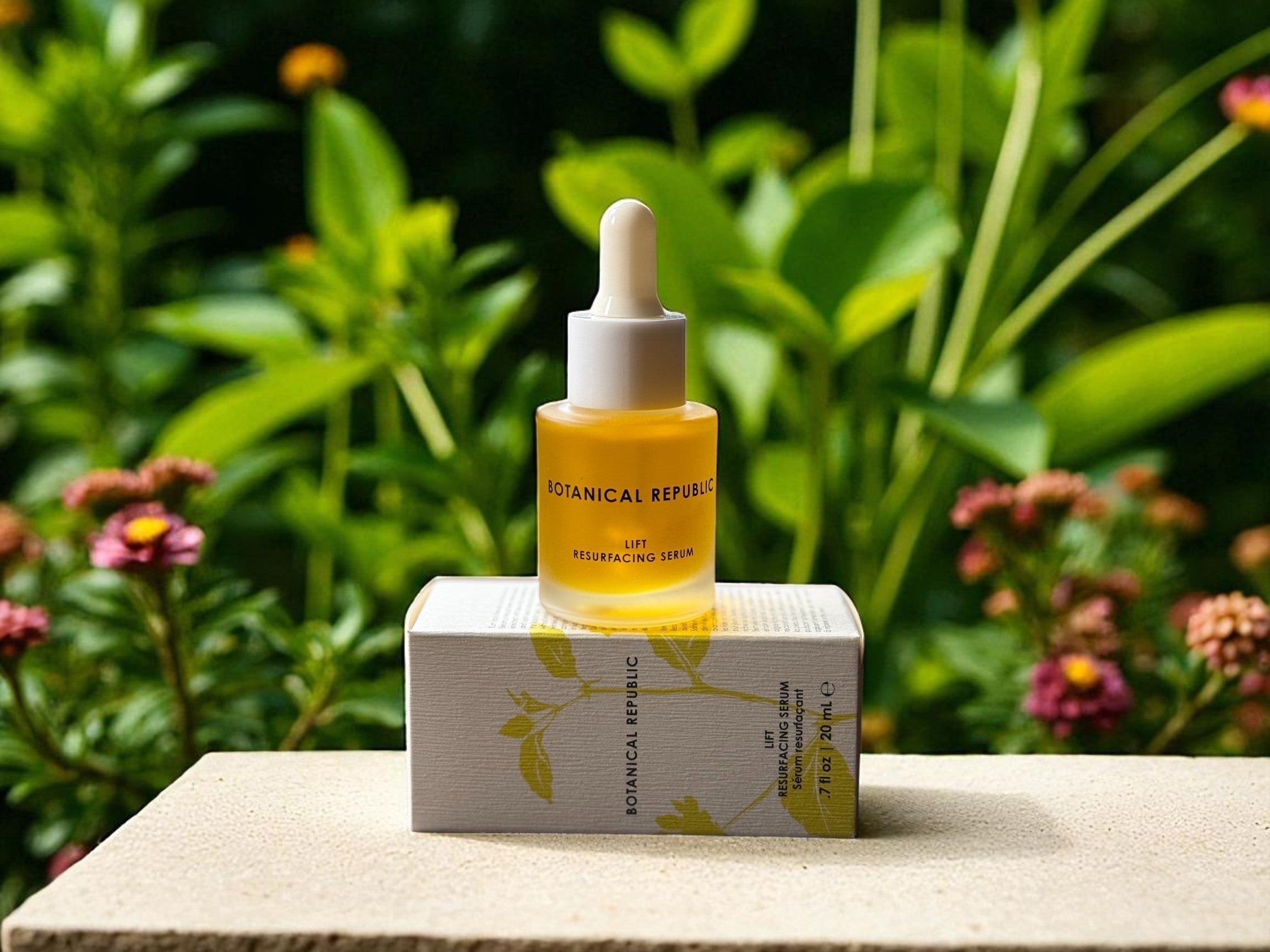When it comes to anti-aging skincare, retinol has long been considered the gold standard. This vitamin A derivative is known for its ability to reduce the appearance of fine lines, improve skin texture, and boost collagen production. However, for many people, retinol comes with a frustrating downside: redness, dryness, and irritation.
That is where bakuchiol comes in. Often called the natural alternative to retinol, bakuchiol is a plant-based ingredient that delivers similar results without the harsh side effects.
What Is Retinol?
Retinol is a synthetic derivative of vitamin A that speeds up cell turnover. When used consistently, it can help reduce the look of wrinkles, fade dark spots, and improve overall skin tone. Dermatologists often recommend retinol because it is one of the most well-studied ingredients in anti-aging skincare.
The drawback is that retinol can be harsh on the skin. Many people experience peeling, redness, and increased sensitivity, especially when first starting to use it. Retinol also makes the skin more sensitive to sunlight, which means consistent use of sunscreen is non-negotiable.
What Is Bakuchiol?
Bakuchiol is a natural compound extracted from the seeds and leaves of the Psoralea corylifolia plant, also known as the Babchi plant. It has been used for centuries in traditional Ayurvedic and Chinese medicine. In recent years, bakuchiol has gained attention in the skincare world as a clean, gentle alternative to retinol.
Unlike retinol, bakuchiol does not cause irritation or sensitivity to sunlight. Studies suggest it can deliver many of the same benefits: reducing the appearance of fine lines, improving elasticity, and helping to even out skin tone.
Bakuchiol vs. Retinol: Key Differences
Tolerance
Retinol is effective but often irritating. Bakuchiol is far more gentle and well tolerated by sensitive or aging skin.
Sun Sensitivity
Retinol increases sensitivity to sunlight. Bakuchiol does not, making it easier to use during the day.
Suitability
Retinol is not recommended for those with extremely sensitive skin or for use during pregnancy. Bakuchiol is plant-based and generally considered safe for a wider audience, though it is always smart to consult with a doctor.
Results
Both ingredients can improve the look of fine lines, wrinkles, and uneven tone. Retinol may work faster in some cases, but bakuchiol offers a balanced approach with fewer side effects.
Why Choose Bakuchiol?
If your skin struggles with irritation, or if you prefer clean and plant-based formulations, bakuchiol is an excellent choice. It allows you to pursue anti-aging benefits while respecting your skin’s natural balance. For those with mature or dry skin, bakuchiol provides hydration support alongside its anti-aging properties.
At Botanical Republic, we embrace the power of bakuchiol in our formulations. By combining it with other antioxidant-rich botanicals, we create products that deliver visible results while staying gentle and safe for daily use.
The Takeaway
Retinol remains a proven powerhouse in the world of skincare, but it is not the right fit for everyone. Bakuchiol offers a clean, plant-based alternative that can reduce the appearance of fine lines and support healthy, radiant skin without irritation.
If you are looking for an anti-aging solution that fits a clean beauty lifestyle, bakuchiol may be the ingredient your routine has been missing.
References
-
Mukherjee S, Date A, Patravale V, et al. Retinoids in the treatment of skin aging: an overview of clinical efficacy and safety. Clin Interv Aging. 2006;1(4):327–348.
-
Dhaliwal S, Rybak I, Ellis SR, et al. A randomized, double-blind, clinical study evaluating bakuchiol and retinol. Br J Dermatol. 2019;180(2):289–296.
-
Kafi R, Kwak HSR, Schumacher WE, et al. Improvement of naturally aged skin with vitamin A (retinol). Arch Dermatol. 2007;143(5):606–612.
-
Zasada M, Budzisz E. Retinoids: active molecules influencing skin structure formation in cosmetic and dermatological treatments. Postepy Dermatol Alergol. 2019;36(4):392–397.
-
Chaudhuri RK, Bojanowski K. Bakuchiol: a retinol-like functional compound revealed by gene expression profiling and clinically proven to have anti-aging effects. Int J Cosmet Sci. 2014;36(3):221–230.
-
Dhaliwal S, Rybak I, Ellis SR, et al. Bakuchiol: a retinol-like functional compound with anti-aging effects. Br J Dermatol. 2019;180(2):289–296.
-
Fowler JF. Retinol vs bakuchiol: tolerability profiles in cosmetic use. J Drugs Dermatol. 2020;19(7):697–702.
-
Chaudhuri RK, Bojanowski K. Bakuchiol: a plant-derived alternative to retinol. Int J Cosmet Sci. 2014;36(3):221–230.
-
Satchell AC, Saurajen A, Bell C, Barnetson RS. Safety and tolerability of bakuchiol. Phytomedicine. 2019;63:153000.
-
Dhaliwal S, Rybak I, Ellis SR, et al. Bakuchiol vs retinol: comparative clinical results. Br J Dermatol. 2019;180(2):289–296.
